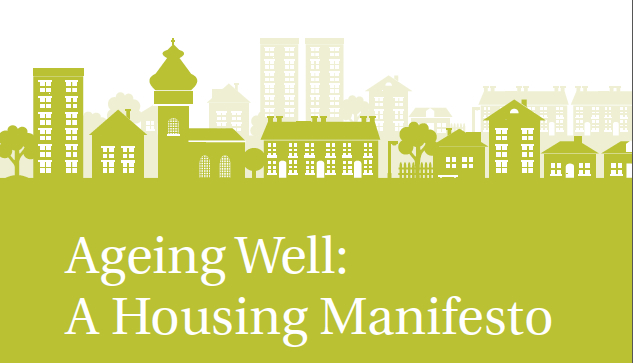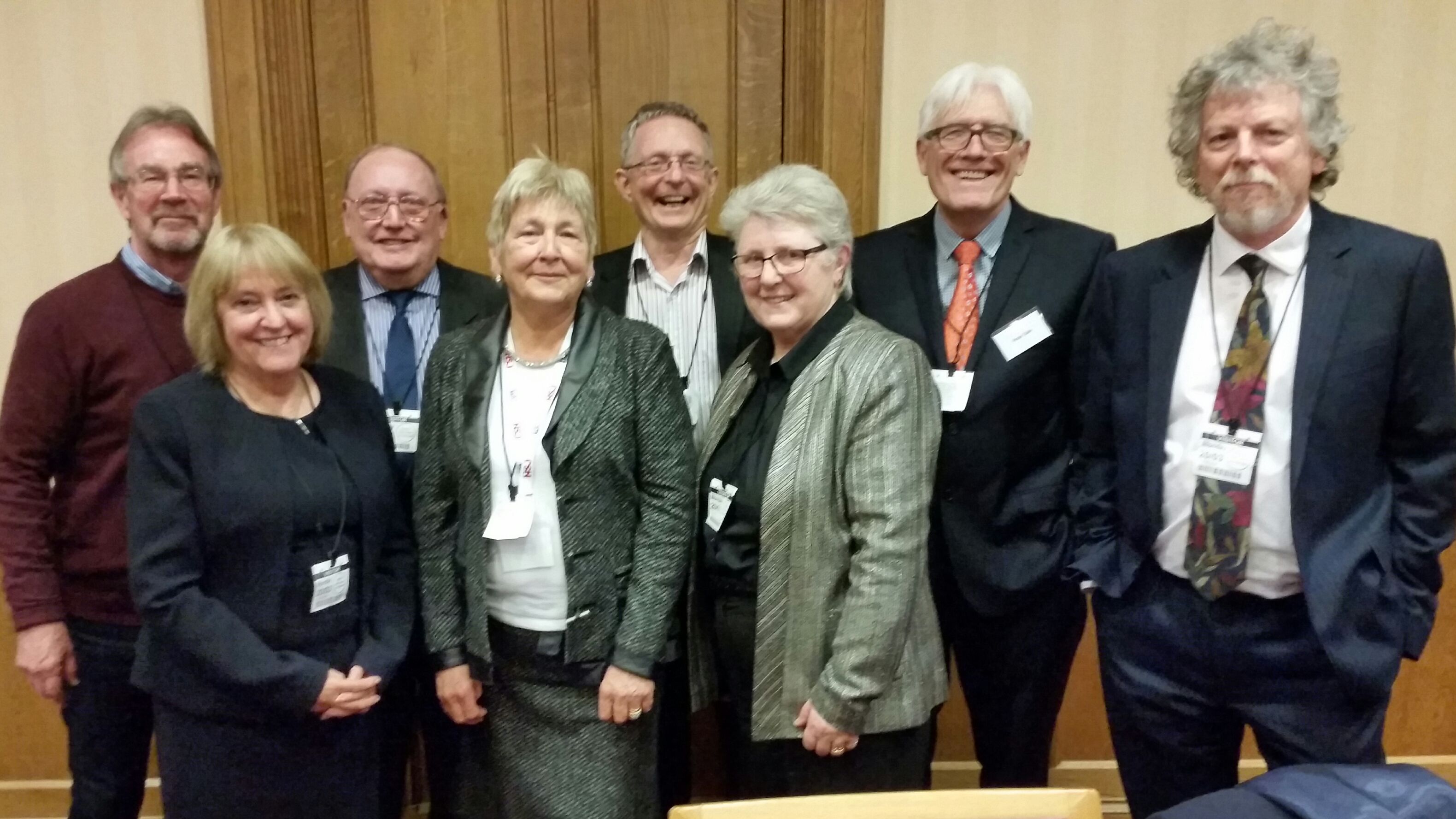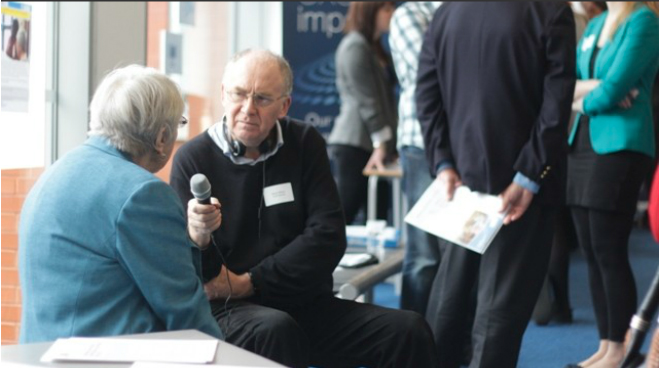EngAgeNet’s Peter Dale contends that Intergenerational conflict is a false and divisive narrative that prevents us from addressing the real issues in society
At the moment it really feels as though our society faces battles on every front: millions of us are struggling with the choice between heating and eating; our health and care services are in crisis; an epidemic continues to sweep the land. And, if all that weren’t enough, there is a pervasive and corrosive narrative that suggests the older generation are a drain on society and are being supported by younger people.
It hasn’t helped that the long-awaited additional funding for social care is to be paid for by increased National Insurance on working people, that house prices have become unaffordable for a huge swathe of younger people, or that many younger people made huge sacrifices to protect the vulnerable from the first ravages of the pandemic.
Our concern, as a collective of organisations which have long campaigned for a fairer and more equal society, is that this narrative of “young vs old” is being promulgated to distract us from the real issues which affect all generations: the underfunding of public services; too few houses being built; an unfair and regressive tax regime that hits lower paid people hardest; inflation rates that impact all generations; an underinvestment in sustainable energy; low pay and insecure employment; and an inadequate State Pension that will eventually inflict hardship on today’s younger generation.
Back in 2018, following a number of conversations with older people, we published “A New Narrative on Ageing”. This set out to challenge society’s negative attitudes towards older people by presenting clear evidence to refute a number of commonly-held assumptions that contribute to such attitudes becoming embedded in people’s perceptions of ageing: in particular, that older people are a “net drain” on our society.
Our belief was, and remains, that a better understanding of the realities of ageing will lead to better policies and decision making, and hence to better outcomes for the quality of life and well-being of older people. But the situation has moved on significantly in the four years since we undertook that research. The coronavirus pandemic in particular appears to have fostered ageism and created division between younger and older generations.
At the same time, it has exposed the reality and inadequacy of the social care system, particularly residential care. Now more than ever, therefore, it is vitally important to reinforce the case for a more positive view of older people and ageing.
In the light of the pandemic we have revisited our original findings and, far from any of them being resolved, the situation has markedly deteriorated. We believe that it is critical that we urgently look again at the issues that supposedly divide us because, we believe, only by gaining a better understanding of each other can we collaborate to find mutually beneficial solutions to the challenges that society faces. So, we are seeking to reinterpret the messages contained in our New Narrative and to reflect on key issues affecting older people. Our pamphlet, Intergenerational unfairness: myth or reality? (available on the link below) is the first in a series of such reflections. What follows is a summary of this key issue told from the point of view of older people.
Discussions concerning intergenerational unfairness commonly cast older people as the ‘villains’, enjoying wealth and privilege, while younger people face difficulty and hardship.
Older people have thus far been reluctant to challenge the notion of intergenerational unfairness, wanting to avoid a ‘race to the bottom’ in terms of competing for the title of who is worst off. However, the ageism experienced by older people during the pandemic requires a robust challenge to the propositions that:
- Older people enjoy privilege at the expense of younger people;
- Life for older people was much easier when they were young than it is for today’s younger generation;
- Older people contribute little socially and economically to society while younger people shoulder the burden for their care
The reality for most older people is different:
- The older you are, the more likely you are to have a low income; 18% (2.1 million) pensioners are estimated to be living in poverty;
- Many older people live in poor, inappropriate housing, much of it in the private rented sector.
- Many older people started work at a much younger age than today’s cohort and without the opportunities for education, and facing just the same barriers of sexism, racism and homophobia as experienced today.
We need to reject the notion of a binary argument: that it can only be the case that younger people struggle and that older people are privileged. We further need to reject the argument that the former is caused by the latter.
The real question perhaps is whether there is sufficient priority given to public sector investment that might mean that essential services such as education, health, and welfare benefits are not competing against each other. Underinvestment in public services and an economy that has created zero hours contracts and shrunk employment opportunities are perhaps more responsible than older people for the real problems faced by younger people.
Intergenerational division is also fuelled by the characterisation of older people as a ‘dead weight’ in society. The reality is that older people make vital social and economic contributions to society – many continue in employment (often because they cannot afford to retire) while millions more provide vital caring and volunteering.
Taking all these contributions together, older people were estimated to be making an annual net positive contribution of £40 billion to the UK economy (i.e., net of the costs of pension, welfare and health support). By 2030 the positive net contribution of older people was forecast to rise to an estimated £77 billion.
The pandemic has also reinforced assumptions about older people being responsible for pressure on NHS resources. However, in overall terms, growth in health spending is largely driven by technological change, such as medicines and surgical techniques. Moreover, millions of people of working age have a long standing illness or disability.
So, is there really a generational divide?
…and are the challenges being faced by one generation caused by the benefits enjoyed by the other?
These questions have been addressed in a research study which involved both younger and older people conducted by the Care, Emotional Health and Well-being Research Group of the University of Brighton and the South East England Forum on Ageing (SEEFA).
The results suggest that younger people themselves may not necessarily buy into the notion of intergenerational unfairness. The value of that research has been to demonstrate that seeking the views of older and younger people is a first step in establishing whether there is common ground between the generations and whether there is an appetite for an approach that unites the generations. Moreover, today’s younger people are tomorrow’s older people. If younger people are able to think about what they want their future to look like, it might help to build a better present for today’s older people.
If common ground rather than conflict exists, then the door is open for dialogue and interaction both of which are likely to produce greater mutual understanding and tolerance – the key to eliminating discrimination and prejudice.


